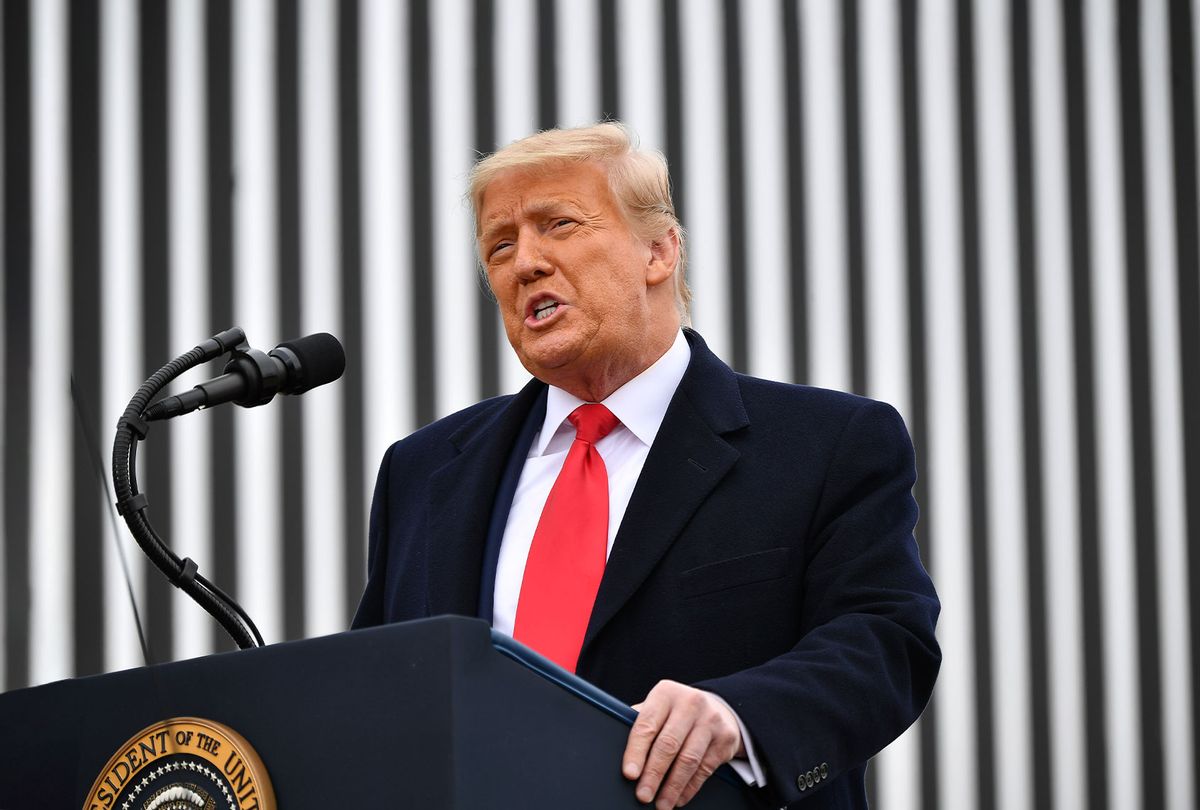A federal judge on Tuesday voided a Trump campaign non-disclosure agreement, ruling that it was too vague to be legally enforceable.
U.S. District Court Judge Paul Gardephe, a George W. Bush appointee, ruled that the Trump campaign cannot enforce its overly broad NDA against Jessica Denson, a former Hispanic outreach director who was ordered to pay nearly $50,000 after she filed a sexual discrimination and harassment lawsuit against the campaign in 2017 and criticized Trump on social media. Though the ruling only applies to Denson, her attorneys argued that it invalidates every campaign NDA.
"As to the scope of the provision, it is — as a practical matter —unlimited," Gardephe wrote in his decision, ruling that the terms were invalid under New York contract law. "Accordingly, Campaign employees are not free to speak about anything concerning the Campaign. The non-disclosure provision is thus much broader than what the Campaign asserts is necessary to protect its legitimate interests, and, therefore, is not reasonable."
The judge ruled that a non-disparagement agreement barring criticism of Trump, his family and his businesses was likewise unenforceable.
"The provision applies not only to President Trump and his family members — including unnamed spouses, children, and grandchildren," he wrote, adding that Trump is also "affiliated with more than 500 companies, and his family members may be affiliated with yet more."
"The Campaign's past efforts to enforce the non-disclosure and non-disparagement provisions demonstrate that it is not operating in good faith to protect what it has identified as legitimate interests," the decision said. "The evidence before the Court instead demonstrates that the Campaign has repeatedly sought to enforce the non-disclosure and non-disparagement provisions to suppress speech that it finds detrimental to its interests."
Denson filed a workplace discrimination and harassment lawsuit against the campaign in 2017, seeking $25 million in damages. She alleged that she was "subject to a hostile work environment and experienced sex discrimination, and that after she complained, high-ranking persons in the campaign retaliated against her."
The Trump campaign brought the case to arbitration, arguing that the suit violated Denson's NDA.
A state court ruled that Denson's claims fell outside of the scope of her NDA and allowed the case to move forward, according to Politico. Denson filed a separate federal lawsuit seeking to invalidate her NDA but a judge dismissed that complaint, ruling that such efforts had to go through arbitration. Denson did not participate in the arbitration case brought by the campaign, but the arbitrator ruled that she had violated her agreement and ordered her to pay nearly $50,000 in damages and legal fees, though that was later overturned by a New York court.
Denson ultimately filed a class-action lawsuit on behalf of all Trump campaign aides who were forced to sign the vague NDAs. The suit argued that the NDA effectively violates employee rights to "redress workplace misconduct."
"Any person who has ever signed the Form NDA, whether or not he or she has entered into government service, subjects himself or herself to grievous financial penalty for the mere act of engaging in constitutionally protected criticism of the sitting President of the United States," the lawsuit said.
Gardephe did not rule on the other cases but agreed that "it is difficult if not impossible for Denson or another campaign employee to know whether any speech might be covered by one of the broad categories of restricted information."
Denson's attorneys told Politico that they believe the judge's ruling effectively voids all NDAs issued by the Trump campaign.
"The court ruled point by point, almost entirely in our favor," attorney David Bowles told the outlet.
The suit was backed by Protect Democracy, an advocacy group that launched in opposition to Trump but describes itself as nonpartisan.
"From our perspective, it's really not about politics," John Langford, an attorney for the group, told Politico. "No one should have to give up their free speech rights or swear allegiance to a candidate forever just to get a job with or volunteer on a campaign."
A Trump adviser left open the possibility that the campaign may try to appeal the ruling.
"We believe the court reached the wrong decision and President Trump's lawyers are examining all potential appeals," the aide told the outlet.
Denson told Politico she was "overjoyed" by the court ruling, predicted that many other former aides who were "terrified to speak out" may come forward.
"Just the terms of the NDA were wildly restricting and it completely stifled public debate, truthful public debate about the Trump campaign and presidency, so this is a massive victory," she said. "NDAs like this are part of the reason why we ended up with a Donald Trump candidacy and presidency in the first place."
Trump has required employees to sign similar agreements for decades, including at the White House despite arguments that such agreements for public employees were unconstitutional. The Justice Department even assisted Trump's efforts, filing a lawsuit last year against Stephanie Winston Wolkoff, a former aide to first lady Melania Trump, over a tell-all book. The DOJ ultimately dropped the suit after President Joe Biden took office.
Trump also used lawyers paid by the campaign and the Justice Department to go after former aides who criticized him, like former White House adviser Omarosa Manigault Newman and former campaign adviser Sam Nunberg, according to The New York Times.
"The campaign has been using this to beat up campaign workers for years," Bowles told the outlet. "Our position is now these things are illegal."



Shares